
One day a rabbit ran into an elephant. "Hello," said the rabbit. "Fine day, isn’t it?" The elephant stopped to look down at the tiny(小的) creature and shouted. "Leave me alone. I don’t have the time to waste on someone so small." The rabbit was shocked by the elephant’s words. Then he decided to ask the whale(鯨魚) what she thought about the elephant’s rudeness. But the whale laughed at this tiny animal. The rabbit said, "You think that I am weak, but in fact, I am strong! I can beat you at Tug-of-War (拔河比賽)."The whale looked at him for a moment before bursting into laughter. "Very well, little one. Go and get a rope," she said.The rabbit ran off to find a strong and thick rope. Then he went to the elephant, "Elephant, I will beat you at a game of Tug-of-War." The elephant laughed loudly, but agreed to challenge the tiny animal. He tied the rope around his huge waist. The rabbit took the other end and ran away. He called back to the elephant, "When I say 'pull’, you start pulling. "The rabbit took the other end of the rope to the whale, "Tie this to your tail and when I say 'pull’,you swim." The whale tied the rope to her tail after laughing at the rabbit’s foolishness. Then the rabbit called out "PULL!" The elephant and the whale began pulling. After a while, they were too tired to continue. The elephant and the whale never knew how such a tiny creature could beat them. But from that day on, they said "hello" to the little rabbit with great respect whenever they met.
【小題1】Why did the rabbit want a game of Tug-of-War?
A.He wanted to show he was the best. | B.He knew that he could do well in this game. | C.He wanted to get respect from the elephant and the whale. | D.He wanted to prove he wasn’t the tiniest animal. |
【小題2】What do you think of the rabbit according to the story?
A.Smart and brave. B.Tiny and stupid.
C.Pride and naughty. D.Poor and weak.
【小題3】Why did the elephant and the whale lose the game?
A.They didn’t prepare for it.
B.They were not as strong as the rabbit.
C.They were too impolite to the little rabbit.
D.They actually fought with each other but not the rabbit.
【小題4】Which statement is TRUE according to the passage?
A.The elephant was pleased to talk to the rabbit at first.
B.It was the whale who suggested having a game of Tug-of-War.
C.The rabbit was stronger than both the whale and the elephant.
D.The whale and the elephant began to respect the rabbit from then on.
練習(xí)冊系列答案
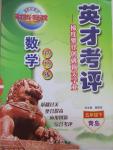 英才考評系列答案
英才考評系列答案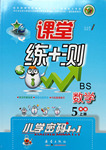 課堂練加測系列答案
課堂練加測系列答案 百分百訓(xùn)練系列答案
百分百訓(xùn)練系列答案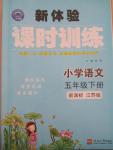 新體驗(yàn)課時訓(xùn)練系列答案
新體驗(yàn)課時訓(xùn)練系列答案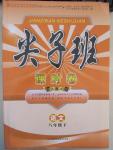 尖子班系列答案
尖子班系列答案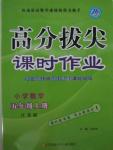 高分拔尖課時作業(yè)系列答案
高分拔尖課時作業(yè)系列答案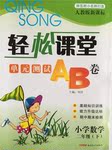 輕松課堂單元測試AB卷系列答案
輕松課堂單元測試AB卷系列答案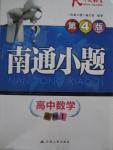 南通小題課時提優(yōu)作業(yè)本系列答案
南通小題課時提優(yōu)作業(yè)本系列答案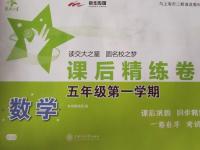 交大之星課后精練卷系列答案
交大之星課后精練卷系列答案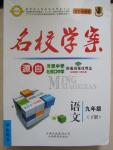 本土教輔名校學(xué)案課時全練系列答案
本土教輔名校學(xué)案課時全練系列答案
年級
高中課程
年級
初中課程
高一
高一免費(fèi)課程推薦!
初一
初一免費(fèi)課程推薦!
高二
高二免費(fèi)課程推薦!
初二
初二免費(fèi)課程推薦!
高三
高三免費(fèi)課程推薦!
初三
初三免費(fèi)課程推薦!
相關(guān)習(xí)題
科目:高中英語
來源:2011-2012學(xué)年河北省保定三中高二下學(xué)期期中考試英語試卷(帶解析)
題型:閱讀理解
I don’t want to talk about being a woman scientist again. There was a time in my life when people asked constantly for stories about what it’s like to work in a field dominated (controlled) by men. I was never very good at telling those stories because truthfully I never found them interesting. What I do find interesting is the origin of the universe, the shape of space, time and the nature of black holes.
At 19, when I began studying astrophysics(天體物理學(xué)), it did not bother me in the least to be the only woman in the classroom. But while earning my Ph.D. at MIT and then as a post-doctor doing space research, the issue started to bother me. My every achievement—jobs, research papers, awards—was viewed through the lens (鏡片) of gender (性別) politics. So were my failures. Sometimes, when I was pushed into an argument on left brain versus (相對于) right brain, or nature versus nurture (培育), I would instantly fight fiercely on my behalf and all womankind.
Then one day a few years ago, out of my mouth came a sentence that would eventually become my reply to any and all provocations (挑釁) : I don’t talk about that anymore. It took me 10 years to get back the confidence I had at 19 and to realize that I didn’t want to deal with gender issues. Why should curing sexism be yet another terrible burden on every female scientist? After all, I don’t study sociology or political theory.
Today I research and teach at Barnard, a women’s college in New York City. Recently, someone asked me how many of the 45 students in my class were women. You cannot imagine my satisfaction at being able to answer, 45. I know some of my students worry how they will manage their scientific research and a desire for children. And I don’t dismiss those concerns. Still, I don’t tell them “war” stories. Instead, I have given them this: the visual of their physics professor heavily pregnant doing physics experiments. And in turn they have given me the image of 45 women driven by a love of science. And that’s a sight worth talking about.
【小題1】Why doesn’t the author want to talk about being a woman scientist again?
A.She is fed up with the issue of gender discrimination (歧視). B.She feels unhappy working in male-dominated fields. C.She is not good at telling stories of the kind. D.She finds space research more important.
【小題2】From Paragraph 2, we can infer that people would attribute (把…歸因于) the author’s failures to ________.A.the burden she bears in a male-dominated society B.her involvement in gender politics C.her over-confidence as a female astrophysicist D.the very fact that she is a woman
【小題3】What did the author constantly fight against while doing her Ph.D. and post-doctoral research?
A. Lack of confidence in succeeding in space science.
B. Unfair accusations from both inside and outside her circle.
C. People’s fixed attitude toward female scientists.
D. Widespread misconceptions about nature and nurtured.
【小題4】What does the image the author presents to her students suggest?A.Women students needn’t have the concerns of her generation. B.Women can balance a career in science and having a family. C.Women have more barriers on their way to academic success. D.Women now have fewer problems pursuing a science career.
查看答案和解析>>
科目:高中英語
來源:江西省09-10學(xué)年高一下學(xué)期期中考試(英語)
題型:閱讀理解
Tea drinking was common in China for nearly
one thousand years before anyone in Europe had ever heard about tea.People in Britain were much
slower in finding out what tea was like, mainly because tea was very expensive.
It could not be bought in shops and even those people who could afford to have
it sent from Holland did so only because it was a fashionable curiosity. Some
of them were not sure how to use it. They thought it was a vegetable and tried
cooking the leaves. Then they served them mixed with butter and salt. They soon
discovered their mistake but many people used to spread the used tea leaves on bread
and give them to their children as sandwiches.
Tea remained scarce and very expensive in
England until the ships of the East Indian Company began to bring it direct
from China early in the seventeenth century. During the next few years so much
tea came into the country that the price fell and many people could afford to
buy it.
At the same time people on the Continent
were becoming more and more fond of tea.Until then tea had been drunk without milk in it, but one day a
famous French lady named Madame de Sevigne decided to see what tea tasted like
when milk was added.She found it so pleasant that she would never again drink it without
milk. Because she was such a great lady her friends thought they must copy
everything she did, so they also drank their tea with milk in it. Slowly this
habit spread until it reached England and today only very few British drink tea
without milk.
At first, tea was usually drunk after
dinner in the evening. No one ever thought of drinking tea in the afternoon
until a duchess (公爵夫人) found that a cup of tea and a piece of cake at three or four
o’clock stopped her getting “a sinking feeling” as she called it. She invited
her friends to have this new meal with her and so, tea-time was born.
67.Which of the following is true of the introduction of tea into
Britain?
A. The British got expensive tea from
India.
B. Tea reached Britain from Holland.
C.The British were the first people in Europe who drank tea.
D.It was not until the 17th century that the British had tea.
68.Tea became a popular drink in Britain_____________.
A.in eighteenth century
B.in sixteenth century
C.in seventeenth century D.in the late seventeenth century
69.People in Europe began to drink tea with milk because_____________.
A.it tasted like milk
B.it tasted more pleasant
C.it became a popular drink
D.Madame de Sevigne was such a lady with great social influence that
people tried
to copy the way she drank tea
70.We may infer from the passage that the habit of drinking tea in
Britain was mostly
due to the influence of ________.
A.a(chǎn) famous French
lady B.the ancient Chinese
C.the upper social
class D.people in Holland
71.What does the passage mainly talk about?
A.The history of tea drinking in Britain B.How tea became a popular drink
in Britain
C.How the British got the habit of drinking tea D.How tea-time was born
查看答案和解析>>
科目:高中英語
來源:江蘇省2009-2010學(xué)年高三下學(xué)期高考模擬英語試題(5)
題型:閱讀理解
There was once a beautiful nymph called
Echo. But Echo had one failing; she was fond of talking, and whether in chat or
argument, would have the last word. As she was good company , she and Zeus
became good friends. However,Zeus’ wife, Hera, became jealous. She followed Zeus to the earth to
find out what he was doing and Zeus asked Echo to distract Hera until he could
escape. Later when Hera discovered she had been tricked, she became very angry.
She turned on Echo and said, “You shall lose the use of your tongue because you
cheated me. You’ll have the last word, bur no longer have the power to speak
first.” So from that moment on, Beautiful Echo was hardly able to hold a
conversation because she could only repeat the last words of those around her.
She became very embarrassed and hid herself deep in the woods.
One day a handsome young man called
Narcissus came into the woods. He had been hunting deer and lost his way.
However, the moment Echo saw him, she fell in love with him. She followed him,
wishing to tell him but unable o begin a conversation. Oh, how she wished she
could speak first. Unfortunately, Narcissus was far too busy worrying about
where his companions might be and how he could find his way home.
Eventually Narcissus, with Echo following
behind along, came to a pool of water in the middle of the woods. Feeling
thirsty, Narcissus bent down to drink. As he did so, he saw a beautiful
creature in the water staring up at him. . He immediately bent over and said to
him, “I love you!” Echo, nearby, and seeing her chance, immediately responded
“…. I love you!” But it was too late. Narcissus was already in love, with
himself.
` The
stranger seemed to rise up closer to Narcissus who was so involved that he
entirely failed to notice Echo. “I want to stay and look at this beautiful
sight forever,” he whispered dreamily to himself.”… Forever,” repeated Echo
sadly. “Come her,” called Narcissus to his reflection as he moved his head and
the creature seemed to move away. “…Here.” responded Echo. Narcissus bent back
down to see his reflection more clearly. “So beautiful! I’ve never seen
anything so beautiful!” “….So beautiful!” responded Echo truthfully.
Narcissus remained by the water refusing
all Echo’s silent offers of food and drink until he died. Where he had been, a
flower grew in his place, as beautiful as Narcissus himself. As for Echo, from
that time forward, she also didn’t eat or drink till she turned to rocks and
all that was left was her voice. Even now you can still hear Echo trying to
attract Narcissus’ attention by repeating his words and still see Narcissus as
a beautiful flower growing near a pool.
63. Why was Echo unable to let
Narcissus know she loved him?
A. Because she had lost the ability to
speak. B. Because she was too shy to
speak first.
C. Because Hera had taken away her ability
to speak first.
D. Because Narcissus took no notice
of her.
64. “The stranger” in paragraph 4 refers to
______.
A.
Echo B. A fairy in the
woods. C.
Hera. D. Narcissus himself.
65. Which of the following kinds of person
can be described as a “Narcissus”?
A. A person who loves and admires himself
or herself.
B. A person who’s afraid of being separated
from companions.
C. A person who is too shy to have a chat
with other people.
D. A person who loves to admire beautiful
water flowers.
66. Which of the following is the correct
order of the events?
a) Hera wouldn’t let Echo start a
conversation.
b) Narcissus fell in love with his
reflection in the water.
c) Echo saw Narcissus and fell in love at
the first sight.
d) Echo distracted Hera to help Zeus
escape.
e) Narcissus became a flower and Echo a
rock.
A.
a-b-c-d-e B.
d-a-c-b-e C.
d-a-b-c-e D.
c-d-a-b-e
67. What’s the best title of this passage?
A. Echo’s
sacrifice.
B. Echo and Hera.
C. Echo and
Narcissus.
D. Narcissus’s self-love.
查看答案和解析>>
科目:高中英語
來源:2011年新課標(biāo)高三上學(xué)期單元測試(1)英語卷
題型:完型填空
閱讀下面短文,掌握大意,然后從各小題所給的A、B、C、D四個選項(xiàng)中選出最佳選項(xiàng)
When
I was a girl, in the deserts of Somalia(索馬里), my family was
nomadic(游牧的), 36 with
our animals, and leading a happy life.
I
was about thirteen 37 my father called me at the end of a hot day.“Come
and 38 here.” He said.“I’ve
found you a 39 ! We have arranged that he will 40 me
five camels.“ That night I ran away.I
was 41.For almost three
weeks, I walked 42 the desert, and finally I got to my
auntie’s house in Mogadishu.Auntie’s husband was
an ambassador(大使), and in a few months I 43
Britain to work at his London house.
One
day a 44 called Michael Goss saw me in the street.He
took my picture and the photographs were 45 .“You
should try and do 46 ,” he told me.When
my aunt and uncle 47 Africa, I stayed in London.I
found a place to stay and got 48 at McDonald’s before
I took Michael Goss’s photographs to an agency one day.They
49 me to a studio, and my picture appeared 50
of the Pirelli calendar.Soon after that, the
agency got me 51 in
the James Bond film The Living Daylights.
That
was seven years ago.Since then I’ve done
modeling all over the world and I’ve had frequent 52 in magazines such as Vogue and Elle.I
have 53 hosted the US music program Soul Train.
Once
54 five camels, now I can 55 up to ₤5000
for one day’s work.I have gone from the bottom to
the top.
1.A.working
hard B.living
together C.looking
after D.moving around
2.A.when
B.a(chǎn)fter
C.a(chǎn)s
D.before
3.A.listen
B.sit
C.work
D.see
4.A.business
B.boss
C.husband
D.chance
5.A.support
B.provide
C.share
D.give
6.A.excited
B.worried
C.frightened
D.surprised
7.A.a(chǎn)round
B.through
C.inside
D.beyond
8.A.flew
to B.stayed
in C.chose
D.left
9.A.director
B.editor
C.photographer D.writer
10.A.satisfied
B.beautiful
C.well-mannered D.young
11.A.designing
B.photographing
C.dressing D.modeling
12.A.moved
to B.changed
for C.returned
to D.started for
13.A.something
to eat B.a(chǎn)
job C.a(chǎn)
bedroom D a workroom
14.A.sent
B.wanted
C.ordered
D.informed
15.A.in
the list B.on
the cover C.in the
ads D.on the page
16.A.a(chǎn)
rise B.a(chǎn)
job C.a(chǎn)
part D.a(chǎn)n
actress
17.A.interviews
B.performances C.visits
D.a(chǎn)ppearances
18.A.a(chǎn)lready
B.even
C.yet
D.still
19.A.looking
after B.feeding
C.worth
D.a(chǎn)s much as
20.A.pay
B.spend
C.give D.earn
查看答案和解析>>
科目:高中英語
來源:20102011學(xué)年北京東城區(qū)高三下學(xué)期第二次聯(lián)考英語卷
題型:完型填空
完形填空(共20小題;每小題l.5分,共30分)
閱讀下面短文,掌握其大意,從每題所給的A、B、C、D四個選項(xiàng)中,選出最佳選項(xiàng),并在答題卡上將該項(xiàng)涂黑。
The Man Who Achieved Everything He Could
Once upon a time, there lived a man who wanted to achieve
everything he was capable of achieving. He was obsessed with this desire --- he
ate, slept, and walked with one and only dream: to die, having accomplished
every single thing he was able to accomplish.
There were so many things he could do. He felt like the
whole world could be his, 36 he set his mind to it.
He knew that his 37 had no limits. He
knew that he could accumulate 38 that would dwarf (使相形見絀) that of ancient kings; he knew that he
could 39 books that would shake the minds of generations; he
knew that he could 40 things that would forever change the
lives of millions of people. He lived, constantly feeling the power within ---
and that power knew no bounds.
There was only one problem: having such a potential, but
only one 41, he had to make a choice. He had to decide where to 42
all of his ability. Making that decision was extremely hard, for any 43
meant cutting off some future achievements. In the meantime, he went
to school, graduated, found a job, married, and 44 children.
And he spent every minute of his spare time trying to decide 45 he
should bring his potential into full play.
Time went by, and he grew 46. Some roads he
used to dream about became closed to him. But there was still so much he could
accomplish.
One day, a sudden chest pain made him come home early.
He dragged his feet to the bathroom. There, feeling 47, he looked
in the mirror. A worn-out, gray-haired man stared back at him. He looked 48
into these eyes and, all of a sudden, 49 one simple
truth. The next moment, the pain came again, and his heart stopped 50 forever.
The truth that came upon him was rather simple: People
only flatter themselves (自以為是,自鳴得意) by thinking that they could have 51 this or
that if not for such-and-such circumstances. Yet this is nothing but 52
. You simply lack something that is 53 for achieving that
goal you’ve never reached — a talent, a skill, willpower, 54 something
else. In fact, 55 you don’t achieve is something you’re not
capable of achieving.
1. A. before B.
since C.
if D.
though
2. A. wisdom B.
potential C. world
D. freedom
3.A. courage B.
interest C.
knowledge D. power
4. A. write B.
read C.
buy D.
edit
5. A. invent B.
acquire C. adopt D.
destroy
6. A. step B.
life C.
chance D. condition
7.A. promote B.
accumulate C. increase D.
apply
8. A. choice B.
mistake C. failure D.
effort
9.A. assisted B.
loved C. raised D.
punished
10. A. why B.
where C. when D.
whether
11. A. greedier B.
wiser C. older D.
cruder
12. A. sleepy B. weak C.
satisfied D.
comfortable
13. A. carelessly B.
secretly C.
angrily D. closely
14. A. realized B.
remembered C. reminded D.
created
15. A. fueling B.
starting C.
beating D. moving
16. A. learned B.
achieved C. undertaken D.
doubted
17.A. reality B.
history C. imagination D.
record
18. A. unimportant B.
necessary C. unbelievable D.
ordinary
19.A. and B.
even C.
or D.
as
20. A. what B.
which C. that D.
how
查看答案和解析>>
湖北省互聯(lián)網(wǎng)違法和不良信息舉報(bào)平臺 | 網(wǎng)上有害信息舉報(bào)專區(qū) | 電信詐騙舉報(bào)專區(qū) | 涉歷史虛無主義有害信息舉報(bào)專區(qū) | 涉企侵權(quán)舉報(bào)專區(qū)
違法和不良信息舉報(bào)電話:027-86699610 舉報(bào)郵箱:58377363@163.com
版權(quán)聲明:本站所有文章,圖片來源于網(wǎng)絡(luò),著作權(quán)及版權(quán)歸原作者所有,轉(zhuǎn)載無意侵犯版權(quán),如有侵權(quán),請作者速來函告知,我們將盡快處理,聯(lián)系qq:3310059649。
ICP備案序號: 滬ICP備07509807號-10 鄂公網(wǎng)安備42018502000812號